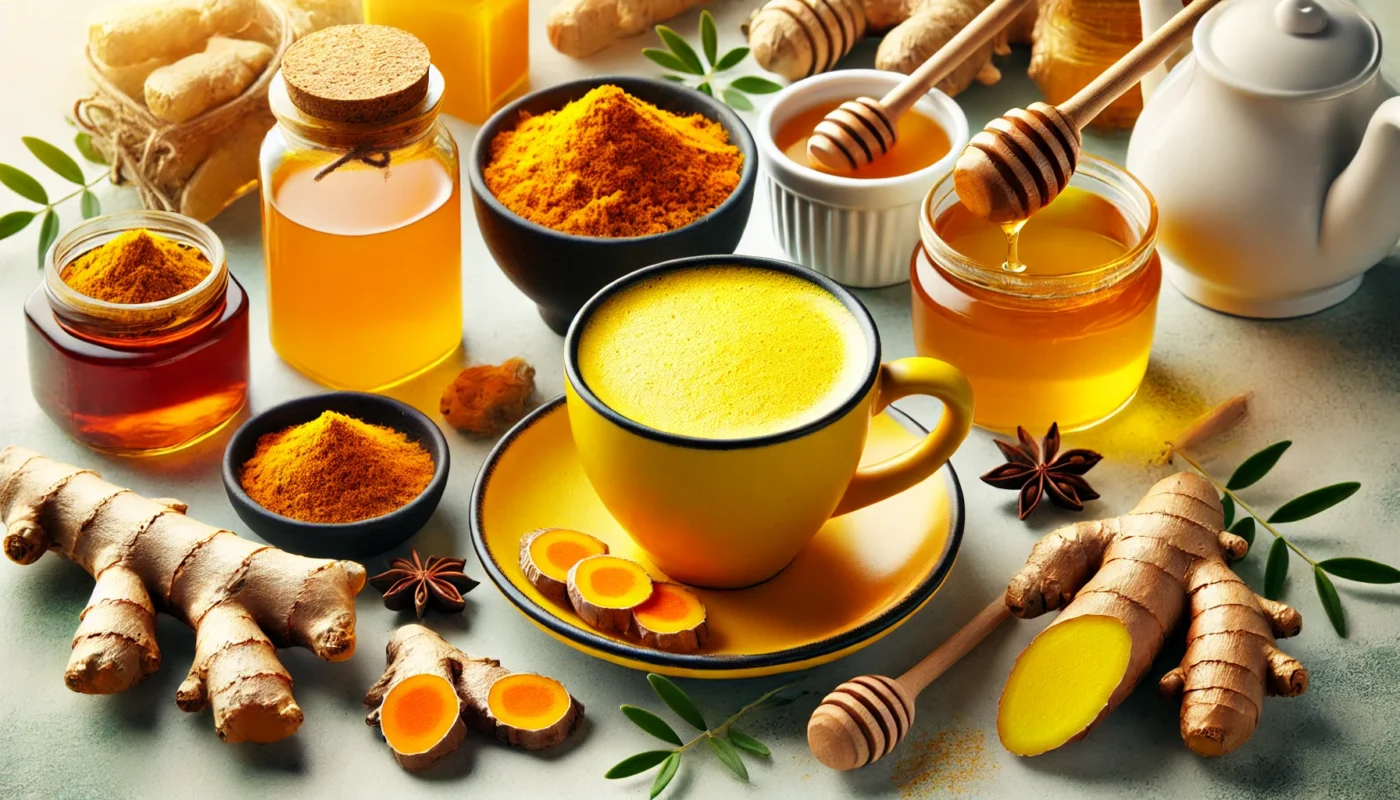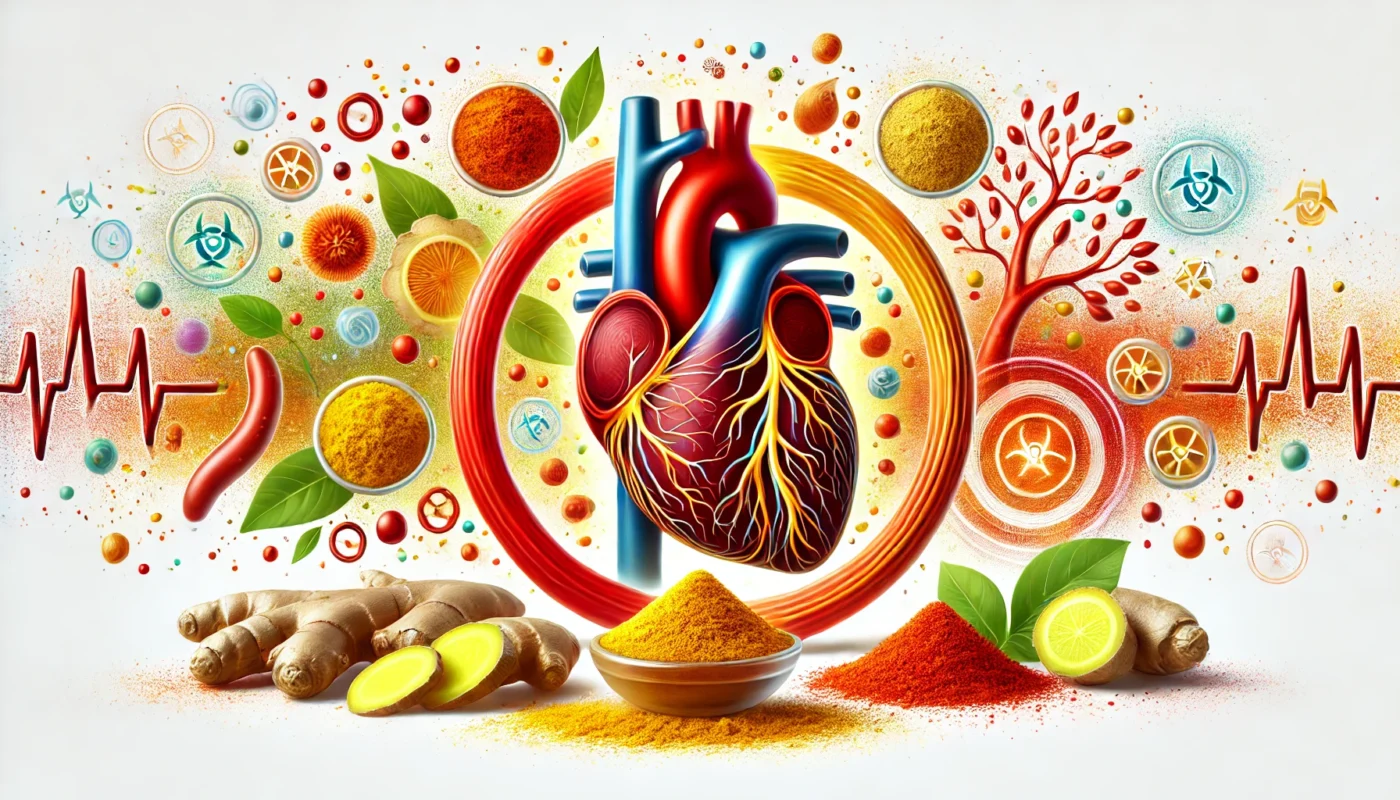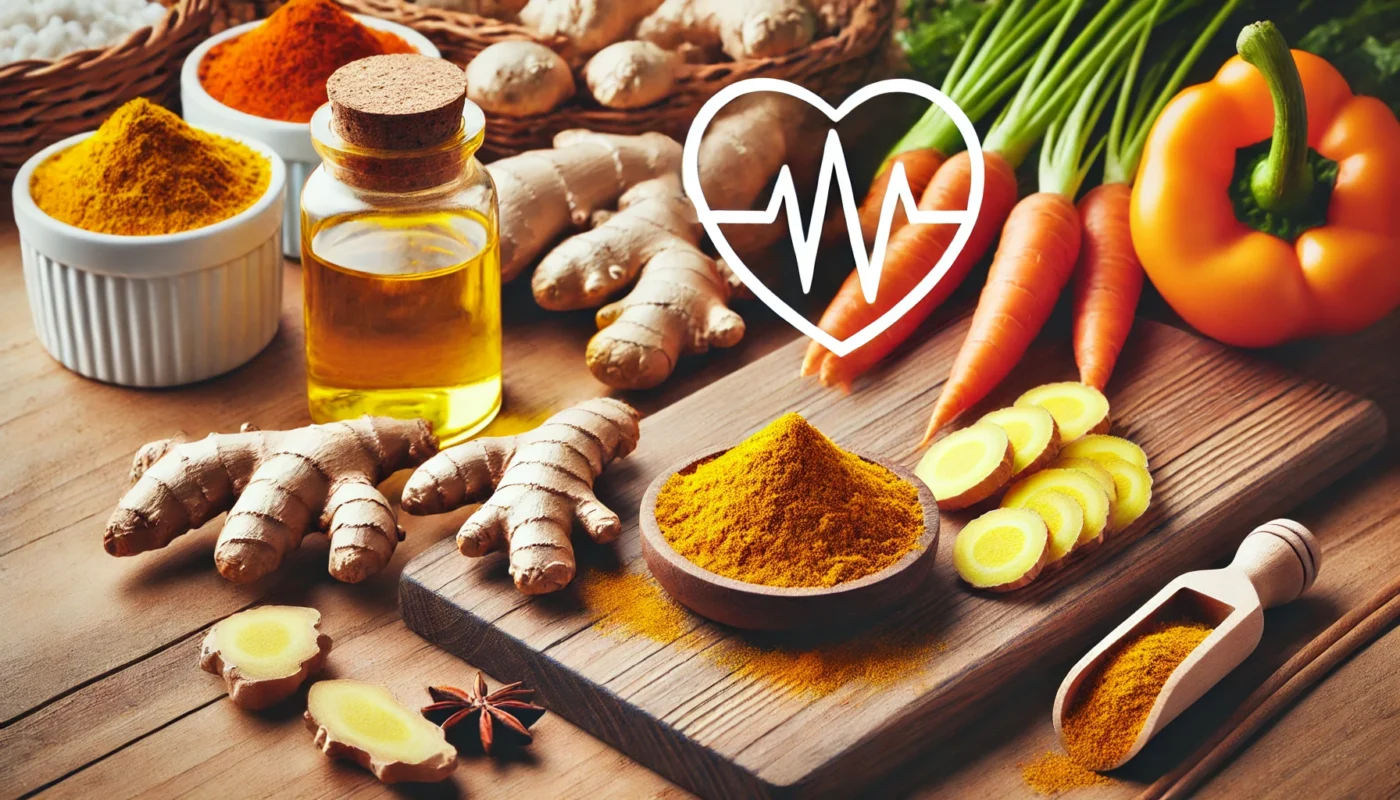Hypertension, commonly referred to as high blood pressure, affects nearly half of all adults worldwide and is a significant risk factor for cardiovascular diseases, kidney failure, and stroke. While traditional management strategies include medication, diet, and exercise, an increasing body of research highlights the role of natural substances, including spices, in blood pressure regulation. Among these, turmeric and ginger stand out for their potent anti-inflammatory, antioxidant, and vasodilatory properties. This article explores the mechanisms through which turmeric and ginger, as well as other common spices, influence hypertension and discusses their potential role in a heart-healthy lifestyle.
You May Also Like: Hypertension and Fast Food: Navigating the Menu for Healthier Options
Understanding Hypertension and Its Underlying Causes
What Is Hypertension?
Hypertension occurs when the force of blood against artery walls is consistently too high, typically defined as a systolic blood pressure (SBP) of 130 mmHg or higher, or a diastolic blood pressure (DBP) of 80 mmHg or higher. Chronic hypertension can damage blood vessels, increase the workload on the heart, and contribute to the development of atherosclerosis.
Key Contributing Factors
- Inflammation: Chronic inflammation damages blood vessels, reducing their elasticity and contributing to hypertension.
- Oxidative Stress: An imbalance between free radicals and antioxidants leads to vascular damage and elevated blood pressure.
- Vascular Resistance: Constricted or stiff blood vessels increase peripheral resistance, raising blood pressure.
Addressing these factors is critical for managing hypertension, and spices like turmeric and ginger may offer natural solutions.

Turmeric: A Golden Remedy for Hypertension
Turmeric, a vibrant yellow spice derived from the root of the Curcuma longa plant, has been used for centuries in traditional medicine. Its primary active compound, curcumin, is responsible for its health benefits.
Mechanisms of Action
- Anti-Inflammatory Effects:
Curcumin inhibits the activity of nuclear factor-kappa B (NF-κB), a protein complex involved in the inflammatory response. By reducing inflammation, curcumin helps improve vascular function and prevent hypertension-related complications. - Antioxidant Properties:
Curcumin neutralizes free radicals and boosts the activity of endogenous antioxidant enzymes, protecting blood vessels from oxidative damage. - Vasodilation:
Turmeric enhances the production of nitric oxide (NO), a molecule that relaxes blood vessels and lowers blood pressure.
- Evidence: A meta-analysis in The Journal of Clinical Hypertension (2019) found that curcumin supplementation reduced SBP by an average of 5 mmHg and DBP by 3 mmHg in individuals with hypertension.
Incorporating Turmeric Into Your Diet
- Add turmeric to soups, stews, or rice dishes.
- Use turmeric powder in smoothies or golden milk.
- Consider curcumin supplements, but consult a healthcare provider for proper dosage.
Ginger: A Spicy Ally Against Hypertension
Ginger, derived from the root of Zingiber officinale, is another widely used spice with significant cardiovascular benefits. Its bioactive compounds, including gingerols and shogaols, are responsible for its medicinal properties.
Mechanisms of Action
- Anti-Inflammatory Effects:
Ginger reduces the production of pro-inflammatory cytokines, which are implicated in the development of hypertension and atherosclerosis. - Antiplatelet Activity:
Ginger prevents platelet aggregation, reducing the risk of blood clots and improving overall vascular health. - Calcium Channel Blockade:
Ginger acts as a natural calcium channel blocker, similar to certain antihypertensive medications, relaxing blood vessels and lowering blood pressure.
- Evidence: A study in Nutrition (2017) found that daily ginger consumption was associated with a 6% reduction in the risk of hypertension, with significant reductions in both SBP and DBP.
Ways to Use Ginger
- Brew fresh ginger tea or add ginger slices to green tea.
- Incorporate grated ginger into stir-fries, marinades, or baked goods.
- Use ginger powder in smoothies or oatmeal.

Other Spices with Hypertension Benefits
In addition to turmeric and ginger, several other spices exhibit properties that may help lower blood pressure:
1. Cinnamon
Cinnamon contains cinnamaldehyde, a compound that improves insulin sensitivity, reduces inflammation, and enhances NO production.
- Evidence: A study published in Diabetes & Metabolism (2013) found that cinnamon supplementation reduced SBP by 5 mmHg and DBP by 2 mmHg in individuals with prediabetes.
2. Garlic
Garlic is rich in allicin, a compound that promotes vasodilation and inhibits the activity of angiotensin-converting enzyme (ACE), which contributes to blood pressure regulation.
- Evidence: A meta-analysis in BMC Cardiovascular Disorders (2018) showed that garlic supplementation reduced SBP by 5–7 mmHg in hypertensive individuals.
3. Cardamom
Cardamom, a fragrant spice, contains antioxidants that improve vascular health and reduce oxidative stress.
- Evidence: A clinical trial in The Indian Journal of Biochemistry & Biophysics (2009) found that cardamom consumption reduced SBP by 6 mmHg in participants with stage 1 hypertension.
4. Cayenne Pepper
Capsaicin, the active compound in cayenne pepper, improves blood flow and reduces vascular resistance by promoting NO production.
- Evidence: Animal studies have demonstrated significant reductions in blood pressure following capsaicin supplementation, though more human trials are needed.
Practical Tips for Using Spices to Manage Hypertension
- Incorporate Spices into Daily Meals:
Use a variety of spices to enhance the flavor and health benefits of your meals. For example, combine turmeric and black pepper to improve curcumin absorption. - Opt for Fresh or Organic Spices:
Fresh or organic spices often contain higher levels of active compounds than processed or pre-packaged varieties. - Avoid Overuse:
While spices are generally safe, excessive consumption may lead to gastrointestinal issues or interact with medications. Always consult a healthcare provider if you are considering supplements. - Pair with a Balanced Diet:
Spices work best as part of a heart-healthy diet, such as the DASH (Dietary Approaches to Stop Hypertension) diet, which emphasizes fruits, vegetables, whole grains, and lean proteins.

Complementing Spices with Nutritional Supplements
In addition to incorporating turmeric and ginger, as well as other spices, certain nutritional supplements can further support hypertension management. Below are five evidence-based options:
1. Magnesium Glycinate
Magnesium helps relax blood vessels and reduce vascular resistance. A study in Magnesium Research (2016) reported a 5 mmHg reduction in SBP with magnesium supplementation.
2. Coenzyme Q10 (CoQ10)
CoQ10 is an antioxidant that protects blood vessels and supports heart function. A clinical trial in Hypertension Research (2007) demonstrated that CoQ10 supplementation reduced SBP by 11 mmHg.
3. Omega-3 Fatty Acids
Omega-3s reduce inflammation and improve arterial flexibility. A meta-analysis in Hypertension (2018) found that omega-3 supplementation reduced SBP by 4 mmHg and DBP by 3 mmHg.
4. Hibiscus Extract
Hibiscus enhances NO production and promotes vasodilation. The Journal of Nutrition (2010) reported a 6 mmHg reduction in SBP with daily hibiscus tea consumption.
5. Beetroot Powder
Beetroot powder is high in nitrates, which improve blood flow and reduce blood pressure. A study in Nutrition Journal (2017) found that beetroot supplementation reduced SBP by 4 mmHg.

Conclusion: Should You Try Spices Like Turmeric and Ginger?
Turmeric and ginger, as well as other common spices, offer significant potential for managing hypertension due to their anti-inflammatory, antioxidant, and vasodilatory effects. These natural remedies, when incorporated into a heart-healthy lifestyle, can complement traditional approaches to blood pressure control. While spices like turmeric and ginger are generally safe, consulting a healthcare provider before combining them with medications or supplements is essential. By leveraging the power of these culinary ingredients, individuals can take proactive steps toward better cardiovascular health and overall well-being.
References
- The Journal of Clinical Hypertension. (2019). Curcumin supplementation and blood pressure control. The Journal of Clinical Hypertension. Retrieved from https://www.jchjournal.com
- Nutrition. (2017). Ginger consumption and cardiovascular risk. Nutrition. Retrieved from https://www.sciencedirect.com
- Diabetes & Metabolism. (2013). Effects of cinnamon on blood pressure. Diabetes & Metabolism. Retrieved from https://www.elsevier.com
- BMC Cardiovascular Disorders. (2018). Garlic and its impact on blood pressure: A meta-analysis. BMC Cardiovascular Disorders. Retrieved from https://www.biomedcentral.com
- Hypertension Research. (2007). CoQ10 supplementation for blood pressure management. Hypertension Research. Retrieved from https://www.nature.com/hr
Key TERMS for this article:
Hypertension, Turmeric, Ginger, Nitric Oxide, Antioxidants, Vasodilation, Cardiovascular Health
Relevant and useful TAGS for this article:
Hypertension Management, Natural Remedies, Turmeric Benefits, Ginger and Heart Health, Anti-Inflammatory Spices, Nitric Oxide Boosters, Antioxidant-Rich Foods, Blood Pressure Control, Heart-Healthy Diet, Spices for Hypertension
Important Note: The information contained in this article is for general informational purposes only, and should not be construed as health or medical advice, nor is it intended to diagnose, prevent, treat, or cure any disease or health condition. Before embarking on any diet, fitness regimen, or program of nutritional supplementation, it is advisable to consult your healthcare professional in order to determine its safety and probable efficacy in terms of your individual state of health.
Regarding Nutritional Supplements Or Other Non-Prescription Health Products: If any nutritional supplements or other non-prescription health products are mentioned in the foregoing article, any claims or statements made about them have not been evaluated by the U.S. Food and Drug Administration, and such nutritional supplements or other health products are not intended to diagnose, treat, cure, or prevent any disease.

